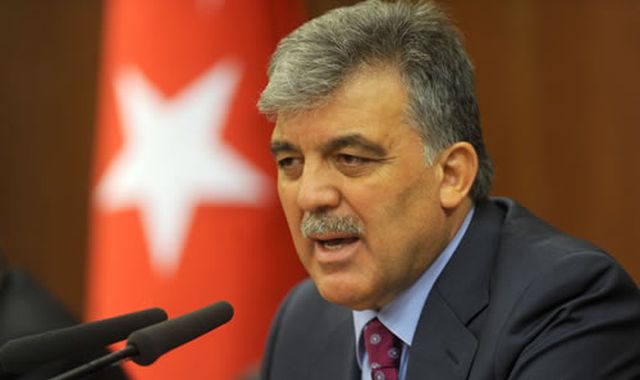Turkish President Abdullah Gul urged international community to take a solid stance on Syria to prevent “something like Afghanistan on the shores of Mediterranean.”

Gul, during his continueing visit in Scotland was interviewed by the Guardian’s Simon Tisdall also complained about the position of western powers on Syria. He said “I don’t think anybody would tolerate the presence of something like Afghanistan on the shores of the Mediterranean. For that reason, the international community must have a very solid position with respect to Syria.” In the front page interview Gul stated “Radicalisation of ordinary people by Islamist jihadist groups was spreading across Syria and posed a growing risk to its neighbours and the countries of Europe, Gul said.” The article also covered Gul’s criticism over the UN Security Council’s performance on Syria, quoting him as saying, “the deaths of more than 100,000 people, mostly civilians, in fighting over the past 32 months could have been avoided.” Gul compained that “Turkish mediation efforts early on in the war were not supported and were even undermined by western powers.” When asked about the risk of the war spreading beyond Syria, the paper quotes Gul’s response: “if Turkey were attacked or Turkish territory invaded, then the government would respond militarily ‘in the strongest way possible’.”
The British paper quotes Gul as saying, “There is no question about this. I don’t see how much worse it can get, it’s already very bad. But let me also say that this is not a bilateral issue between Turkey and Syria. We did not have any conflict with Syria, but when those human rights violations begun to occur and there was massacring of the people of Syria, then it become a matter for mankind, for us all, the international community. It’s only by virtue of being a neighbouring country that Turkey is so very much involved. Also from the point of view the fact that we are hosting 500,000 Syrians in Turkey. Two hundred thousand of them live in camps and 300,000 in the cities through their own means. We have so far spent 2 billion USD for them. We will continue to do so because this is a humanitarian matter, but, it’s very regrettable seeing the indifference on the part of the international community.”
“If the atmosphere remains as it is, then this can lead to more radicalisation and some groups in the civil war becoming more extreme, dividing up, not being under control, and spreading across that country. Because under those circumstances, ordinary people could become much more extreme and this is something that poses a danger and threat not just for Turkey, it’s an issue for everyone. I don’t think anybody would tolerate the presence of something like Afghanistan on the shores of the Mediterranean. For that reason, the international community must have a very solid position with respect to Syria”, Gul adds.
In the article, Gul mentions the international community’s call to Syrian President Bashar Al-Assad to stand down which was then reverted, Gul added, “We talked to Assad because we wanted things to be resolved by peaceful means. That engagement was at all levels, it wasn’t just myself, the prime minister, the foreign minister, we all worked very hard and at the time we even faced pressure from our allies because they said this was going on too long and it wasn’t going anywhere. This is what I mean about the high rhetoric of the international community at the very beginning. They should have done something to follow up on their rhetoric and this was not done. What we tried to do did not work out and there wasn’t much more we could do. I wish Assad had understood what we were telling him. In my very last message to him I said that if things went on as they were, whatever might be done would be too little, too late, and that he should take the initiative and lead the change in his country so the country would not fall to pieces. He read my letter and said it was all very important and good but he did not act on it, he did not do anything. Most certainly, yes, if he had heeded my advice, 100,000 people may not have died and Syria would not have faced so much destruction.”
The 16th page of the Guardian’s Monday November 4 edition includes a seperate article on Turkish President Abdullah Gul’s interview about Turkey’s domestic affairs.
Upon the question of whether he wants a second term as president, Gul replied it was too early to make a decision.
The newspaper underscored Gul was “insisting” that Erdogan was “a friend, not a rival.” He said, “We established the ruling party together with Erdogan, we are the founders of the party. We took the party to government together and we changed Turkey together. Erdogan is a friend and we have worked shoulder to shoulder with him in the course of all these years.”
When questioned about Gezi Park related issues, Gul answered, “I always have openly expressed my views and I expressed them at the time of the demonstrations and in my speech to parliament last month. There is a democratic deficit in Turkey, in other words we have a way to go in taking our standards and criteria further.”
The British paper adds that the Turkish President gave the interview while he was in Scotland’s Edinburgh to attend the Turkey-Britain “Tatlidil” forum.
Anatolia News Agency













